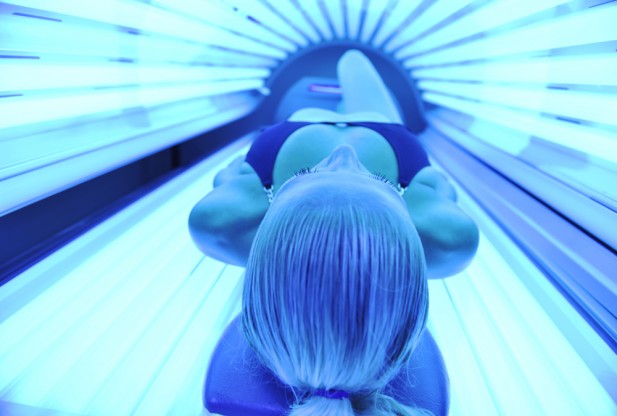
Phototherapy, also referred to as light therapy, is a type of prescription skin care therapy used to treat psoriasis. The treatment involves exposing affected skin to an artificial ultraviolet light source at regular intervals. When skin is exposed to UVB rays either naturally or artificially, the growth of psoriatic skin cells is slowed, giving skin a clearer appearance for up to a year at a time. Treatment is delivered in numerous sessions over a period of several weeks, performed either by a physician or using a physician-prescribed, at-home light therapy box.
Alternatives to Light Therapy
Both treatment options are only available to patients under a doctor’s care. But because UVB rays can be found in various other natural and artificial light sources, some patients suffering from psoriasis have looked for other ways to treat the condition without their doctors’ supervision. Whether for lack of time, lack of funds, or some other reason, some patients have turned to tanning beds for exposure to UVB rays as a skin care treatment.
Phototherapy and Tanning Beds
It’s not hard to see why some people forgo the recommended medical path, opting for therapy at the tanning salon instead of prescription skin care treatments. The tanning salon is affordable, convenient, and definitely exposes skin to UV rays. But unfortunately, there are a number of issues associated with self-treating psoriasis at the tanning salon, and many patients either aren’t aware of them or choose to ignore them.
The first problem is that most tanning beds only emit UVA rays, not the UVB rays that have shown to be an effective skin care treatment for psoriasis. The next problem is that even when using tanning beds that do emit UVB light, it’s very difficult for a patient to know how much light he or she is being exposed to. Physician-supervised treatments provide patients with the optimum amount of light to promote healthier skin, something tanning beds aren’t capable of doing. The third major problem is the increased risk of skin cancer associated with tanning bed use. Prescription light therapies minimize the risk of skin cancer by only targeting parts of the body that need to be treated, while the entire body is exposed to UVB rays in tanning beds.
Prescription Therapy
Our dermatologists endorse the National Psoriasis Foundation’s opinion that tanning beds are not an adequate substitute for physician-supervised light therapy. In fact, we highly discourage patients from using artificial tanning beds for any reason, and we encourage all patients to use sunscreen with any exposure to UV rays. Patients suffering from psoriasis or other skin conditions should contact us to schedule an appointment with a dermatologist for a skincare consultation.
